Introduction
In 2024, ethical hacking certifications are essential for cybersecurity professionals aiming to validate their skills in protecting organizations from cyber threats. With the increasing prevalence of cyberattacks, the Ethical Hacking Online Course certifications provide individuals with the knowledge and techniques necessary to identify vulnerabilities in systems and networks. Popular certifications, such as Certified Ethical Hacker (CEH), Offensive Security Certified Professional (OSCP), and CompTIA PenTest+, equip candidates with practical skills crucial for success in the field.

Best Ethical Hacking Certificates 2024
Ethical hacking certifications are highly sought after in 2024, as they validate the skills and knowledge necessary to safeguard organizations from cyber threats. These certifications provide professionals with the expertise to legally and ethically identify vulnerabilities in networks, systems, and applications.
Here’s a detailed look at the best ethical hacking certifications in 2024:
1. Certified Ethical Hacker (CEH)
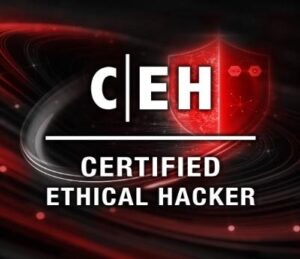
The Certified Ethical Hacker (CEH) certification from the EC-Council is one of the most well-known and widely recognized credentials in ethical hacking. This certification teaches how to think and act like a hacker but legally and ethically. The CEH curriculum covers a wide range of topics such as:
- Network scanning
- System hacking
- Malware threats
- Web application hacking
- Cryptography
- CEH certification structure: It consists of a multiple-choice exam with 125 questions that must be completed in four hours. The CEH certification is updated regularly to stay relevant to modern cybersecurity threats.
- Prerequisites: Two years of work experience in the Information Security domain is required or successful completion of an official EC-Council training course.
- Average Salary: INR 6–12 lakhs annually.
2. Offensive Security Certified Professional (OSCP)
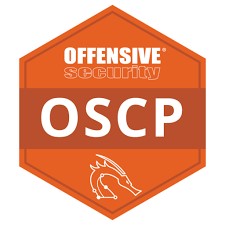
The Offensive Security Certified Professional (OSCP) is considered one of the most challenging and respected certifications for ethical hackers. Offered by Offensive Security, OSCP focuses on hands-on penetration testing skills. Candidates must demonstrate their ability to exploit vulnerabilities and write detailed reports.
Key areas covered:
- Exploit development
- Network penetration testing
- Web application attacks
- Windows and Linux system exploitation
- OSCP certification structure: The certification exam is a rigorous 24-hour practical test in which candidates must penetrate various machines within a lab environment. Consider joining the Ethical Hacking Training in Delhi for the best guidance. This exam is known for its real-world approach, and the candidate must submit a comprehensive report.
- Prerequisites: Intermediate-level knowledge of networking, Linux, and scripting is recommended.
- Average Salary: INR 12–20 lakhs annually.
3. Certified Information Systems Security Professional (CISSP)
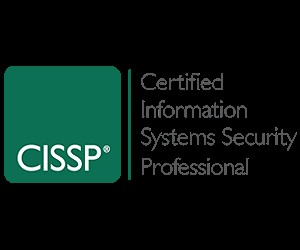
Though the CISSP from (ISC)² is not exclusively focused on ethical hacking, it covers a wide range of cybersecurity topics, including hacking techniques. CISSP is more comprehensive and is ideal for professionals aiming for a senior position in information security management.
Key areas covered:
- Security and risk management
- Asset security
- Security operations
- Software development security
- CISSP certification structure: The exam has 125–175 multiple-choice and scenario-based questions and must be completed within four hours.
- Prerequisites: Five years of professional work experience in at least two of the eight domains covered in the exam.
- Average Salary: INR 15–25 lakhs annually.
4. GIAC Penetration Tester (GPEN)
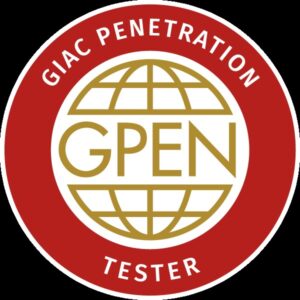
The GIAC Penetration Tester (GPEN) certification from the Global Information Assurance Certification (GIAC) organization is designed for professionals seeking to master penetration testing skills. This certification is ideal for those looking to sharpen their hacking skills or validate their existing knowledge. Consider joining the Ethical Hacking Online Course to learn more.
Key areas covered:
- Exploitation techniques
- Password attacks
- Penetration testing using PowerShell
- Vulnerability scanning and assessment
- GPEN certification structure: The exam consists of 82–115 questions to be completed in 3 hours.
- Prerequisites: While no formal prerequisites exist, it is recommended that candidates have at least two years of experience in the cybersecurity field.
- Average Salary: INR 8–15 lakhs annually.
5. Certified Penetration Testing Professional (CPENT)

The Certified Penetration Testing Professional (CPENT), another advanced certification from EC-Council, takes ethical hacking to a more complex level, focusing on real-world penetration testing.
Key areas covered:
- Advanced penetration testing techniques
- Network-level attacks
- Web application and API hacking
- IoT hacking
- CPENT certification structure: The certification is a 24-hour practical exam that requires candidates to identify and exploit vulnerabilities in real-world scenarios.
- Prerequisites: Experience in ethical hacking and cybersecurity is strongly recommended.
- Average Salary: INR 10–18 lakhs annually.
6. Certified Wireless Network Penetration Tester (CWAPT)
The Certified Wireless Network Penetration Tester (CWAPT) focuses on wireless network security and is one of the few certifications that emphasize ethical hacking skills for Wi-Fi networks.
Key areas covered:
- Wireless network hacking
- Rogue access point detection
- Wireless encryption protocols
- Packet sniffing and injection
- CWAPT certification structure: The exam is 60 questions long and is multiple-choice. The certification is designed for professionals who are already experienced with Wi-Fi networking.
- Prerequisites: Knowledge of wireless networking and basic ethical hacking techniques is recommended.
- Average Salary: INR 7–14 lakhs annually.
7. CompTIA PenTest+
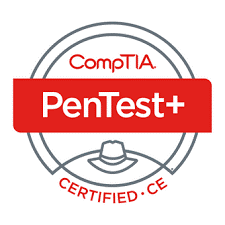
The CompTIA PenTest+ is another widely recognized certification that covers essential penetration testing and vulnerability assessment skills. Unlike the CEH, this certification includes more practical elements and focuses on risk analysis and vulnerability management. One can join Ethical Hacking Training in Delhi for the best skill development.
Key areas covered:
- Vulnerability scanning and management
- Exploit code development
- Cloud and web application penetration testing
- PenTest+ certification structure: It consists of both multiple-choice questions and practical simulations.
- Prerequisites: Experience in network security is recommended but not required.
- Average Salary: INR 5–10 lakhs annually.
Conclusion
These certifications provide a solid foundation for ethical hackers to advance in their careers. Whether you are just starting or looking to specialize in a specific area, certifications like CEH, OSCP, CISSP, and GPEN remain industry standards in 2024. They not only open doors to high-paying jobs but also equip professionals with the expertise to defend against ever-evolving cybersecurity threats.



